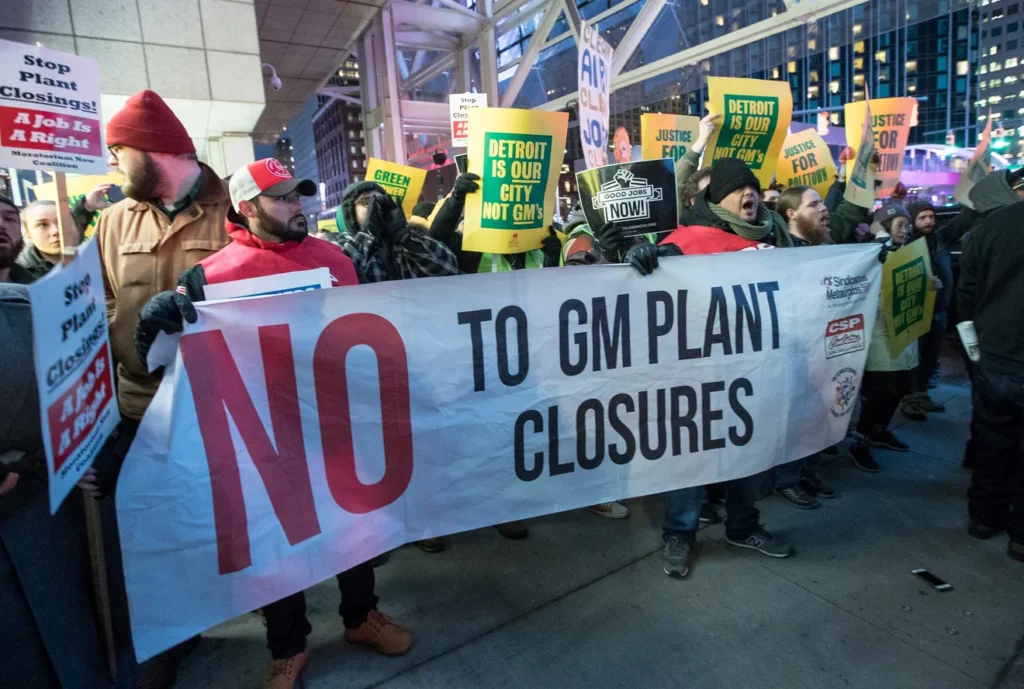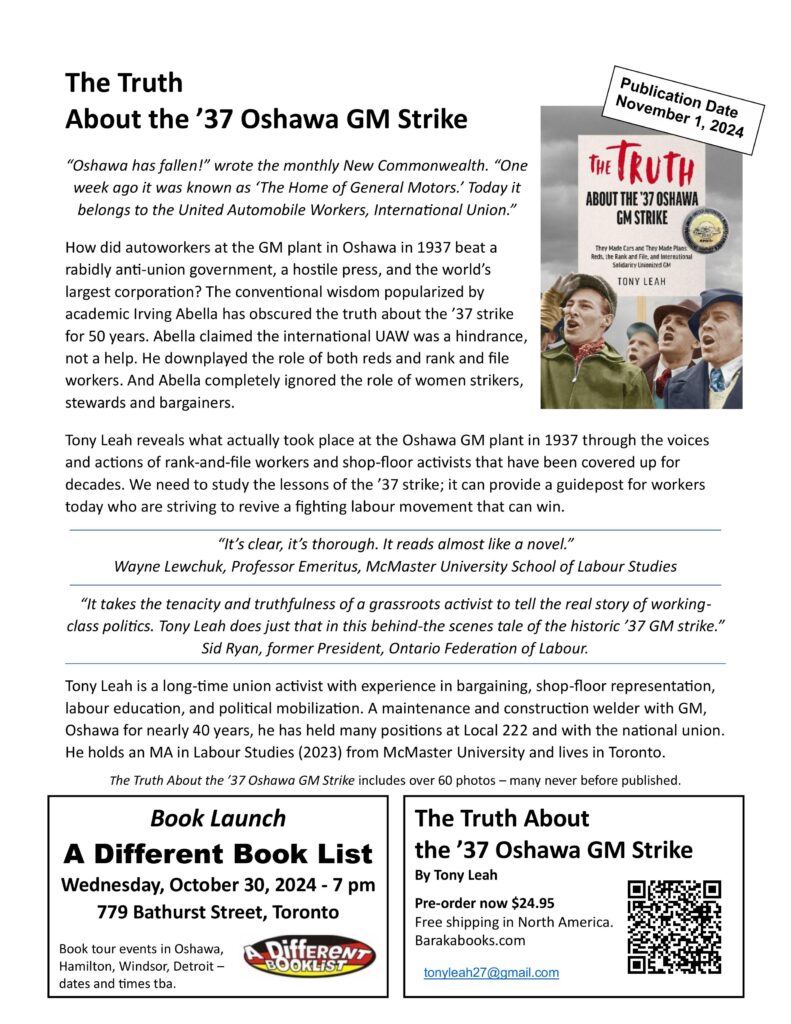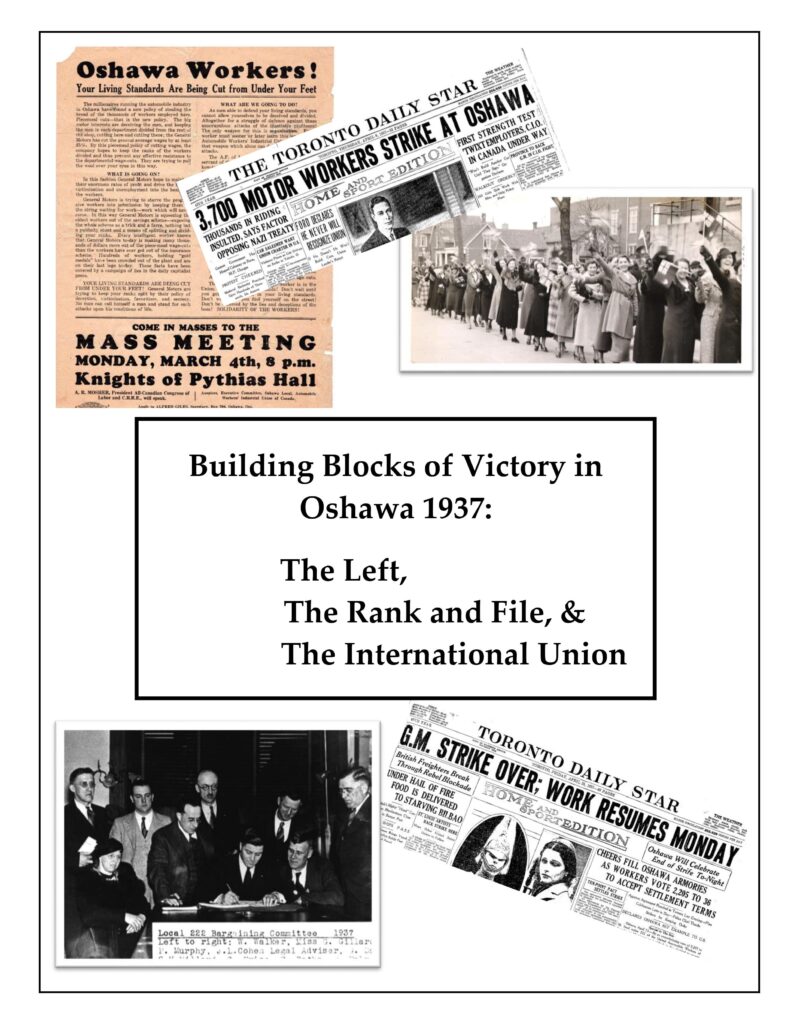March Theses
Tasks of the Working Class in the Trump Tariffs Crisis

- The working class and the billionaire class do not have “common interests” in this crisis. Corporations that have tried to whipsaw workers in different countries for decades to maximize their profits are not looking out for our interests now. Likewise, workers cannot subordinate our interests to governments that have been quick to ban strikes, cut social programs, and to hand out billions of dollars of public funds to corporations that engage in extortion for jobs and investment. The working class has to develop our own program and our own demands and fight for our own class interests. Labour can’t play an independent role if we allow the federal government to choose which union leaders to put on councils, or if labour participates in CEO-led bodies in which they are vastly outnumbered by corporate representatives.
- Labour should go beyond resisting tariffs to demanding that we reduce our dependency on the US by implementing a new industrial strategy based on public ownership and Crown Corporations. As Linda McQuaig argued, high-speed rail “should be handled by a Crown corporation, rather than relying on public-private partnerships, which leave private businesses calling the shots, driving up the costs and controlling our key infrastructure.” Public ownership should be the mechanism for launching major projects for affordable housing, expanded public transit, a green transition that includes manufacturing electric vehicles for government fleets, expanded universal health care, and more. See statements by CUPE and the Canadian Centre for Policy Alternatives (CCPA).
- The Unifor Auto and Parts Councils have announced a policy to “urge the Federal and Provincial Governments to exercise their authority to stop the relocation of any machinery, equipment or other property purchased by automakers with public funds.” “We’ll never allow them to take away any machinery,” said Local 200 President John D’Agnolo. This is an important step in the right direction, but we need to go farther. The labour movement should demand measures to prevent the removal of equipment or shutdown of any productive facilities in Canada. Further, if corporations close down or abandon operations, we should call for government support to put them under public ownership or worker cooperative control where they could become a component of the industrial strategy we need.
- We are facing the threat of coercive annexation. Labour must demand that we remove ourselves from military alliances that put us under the command of the power that is threatening us. Canada should exit NATO and the Five Eyes intelligence alliance. We should break with our government’s subservient support of US aggressive and undemocratic foreign policy exemplified by our shameful participation in the “Lima Group” pretense that Guaido was President of Venezuela, or the illegal kidnapping of Aristide from Haiti. Workers should be demanding that our country be a voice for peace, permanent ceasefire in Gaza, and an end to arms production and sales. We should demand the F-35 contract be killed. We should be making common cause in the defense of all those threatened with US violation of their national sovereignty – including Mexico, Panama, and Greenland.
- International solidarity trumps global greed. “The most effective way for workers to fight back against economic warfare is through international solidarity” – Anthony Marco, president of the Hamilton and District Labour Council. Corporations benefit by playing workers in one country against workers in other countries. Instead of seeing workers in other countries as our competitors for jobs, the first step should be to urgently arrange meetings and discussions between the CLC, the AFL-CIO, and the CTM (Confederación de Trabajadores de México), so we can identify our common interests and make common plans to stand against corporate interests. We need to build common struggles of workers internationally for a living wage, safety and health care, dignity in retirement, and reclaiming of our time through a reduced work week and more vacation time.
- Emergency Conventions of the CLC, OFL and other provincial federations of labour should be convened as soon as possible to consider the above program and other proposals and demands. This is necessary so that the workers of Canada can assert our collective voice, and begin mobilizing to back it up by asserting our collective power.
Tony Leah is the author of The Truth About the ’37 Oshawa GM Strike – order your copy from the publisher, Baraka Books.


